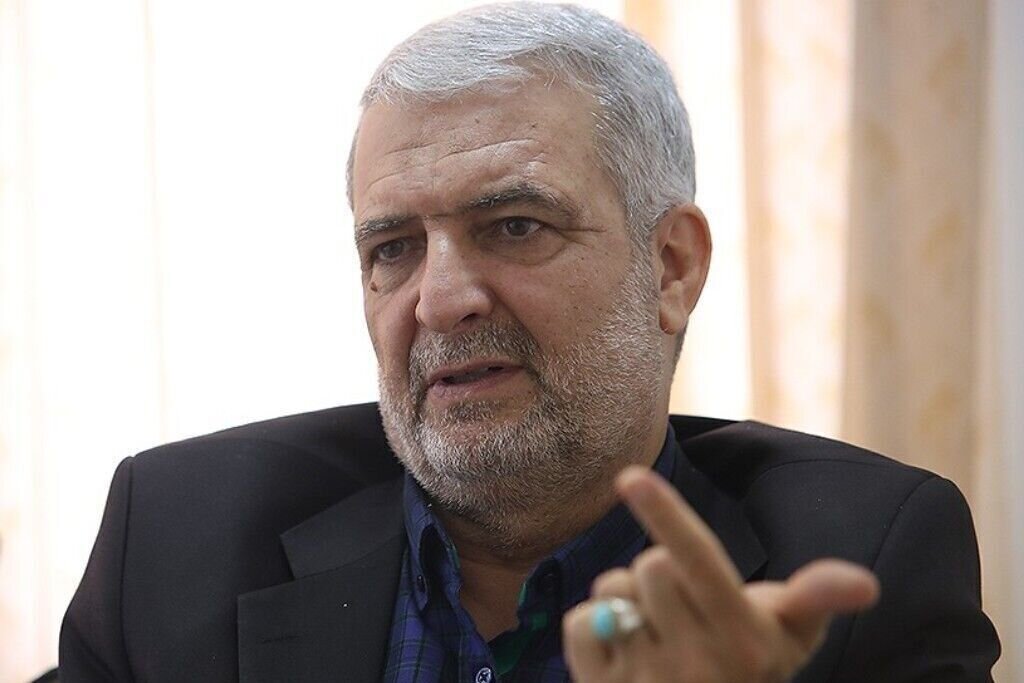Iran's special envoy highlights the need for comprehensive dialogue on Afghanistan

TEHRAN – Iran’s special envoy to Afghanistan, Hassan Kazemi Qomi, has emphasized the need for thorough consultations with all involved parties due to the complex situation in Afghanistan and the surrounding region.
In an early Saturday message on his X account, Kazemi Qomi, who traveled to Qatar to attend the 3rd Doha meeting, stated his intention to clarify Iran’s positions, express Tehran’s concerns about Afghanistan, and outline Iran’s humanitarian policies towards foreign nationals in the country to United Nations officials and other participating nations.
Kazemi Qomi expressed hope that the upcoming negotiations would help alleviate the suffering of the Afghan people and lead to peace, stability, security, sustainable development, and a government based on the people's will, free from foreign interference and domination.
The UN’s third meeting on Afghanistan will take place on June 30-July 1 in Doha, Qatar. U.N. Secretary-General Antonio Guterres initiated the Doha process in May 2023 to establish a cohesive global approach to engaging with the Taliban interim government.
Meanwhile, Afghanistan will request the lifting of sanctions and the development of relations at the UN meeting on Afghanistan, which begins on Sunday. The interim administration’s chief spokesman, Zabihullah Mujahid, is leading the Afghan delegation.
In a message on X, Mujahid confirmed that representatives of the Islamic Emirate of Afghanistan have traveled to Qatar for the Doha meeting. Ahead of their departure, Mujahid addressed journalists, emphasizing their goal to enhance interaction with all parties and resolve existing issues, stating they hold no hostility towards any party.
Mujahid extended an invitation to representatives of the participating countries to visit Afghanistan to foster relations. He stressed the importance of addressing economic problems and lifting sanctions against their administration at the meeting, urging the international community not to abandon Afghanistan amid its challenges. However, he noted that internal Afghan affairs would not be discussed at the meeting.
Women's issues are expected to feature prominently on the agenda. Suhail Shaheen, head of the Qatar office of Afghanistan's interim government, expressed hope to Russian media that the meeting would aid in lifting sanctions against Afghanistan.
UNAMA’s chief explained that the third Doha meeting would focus on assisting Afghan private businesses, addressing financial and banking sector issues, and finding alternative livelihoods for farmers impacted by the Taliban's nationwide ban on opium poppy cultivation. She highlighted that these issues significantly affect women, noting that there are five million addicts in Afghanistan, over 30% of whom are women.
Otunbayeva stated that the Taliban expect international assistance and capacity building in the security, agriculture, and health sectors.
Afghanistan is grappling with various economic, social, and security issues after two decades of U.S. occupation. Since Washington’s military withdrawal from the war-torn country in 2021, the White house has frozen billions of dollars of Afghanistan’s assets under different pretexts, further worsening the plight of Afghan civilians. The Afghan frozen assets are the second-largest amount of financial money from a country that was seized by the U.S. since the Iranian frozen assets from 1980.
Iran, which is home to the largest number of Afghan refugees in the world, has been urging regional and extra-regional countries as well as international bodies to help Tehran soothe the humanitarian crisis in Afghanistan. It has also repeatedly condemned the U.S. for obscuring the establishment of peace and security in the war-stricken nation.
Leave a Comment